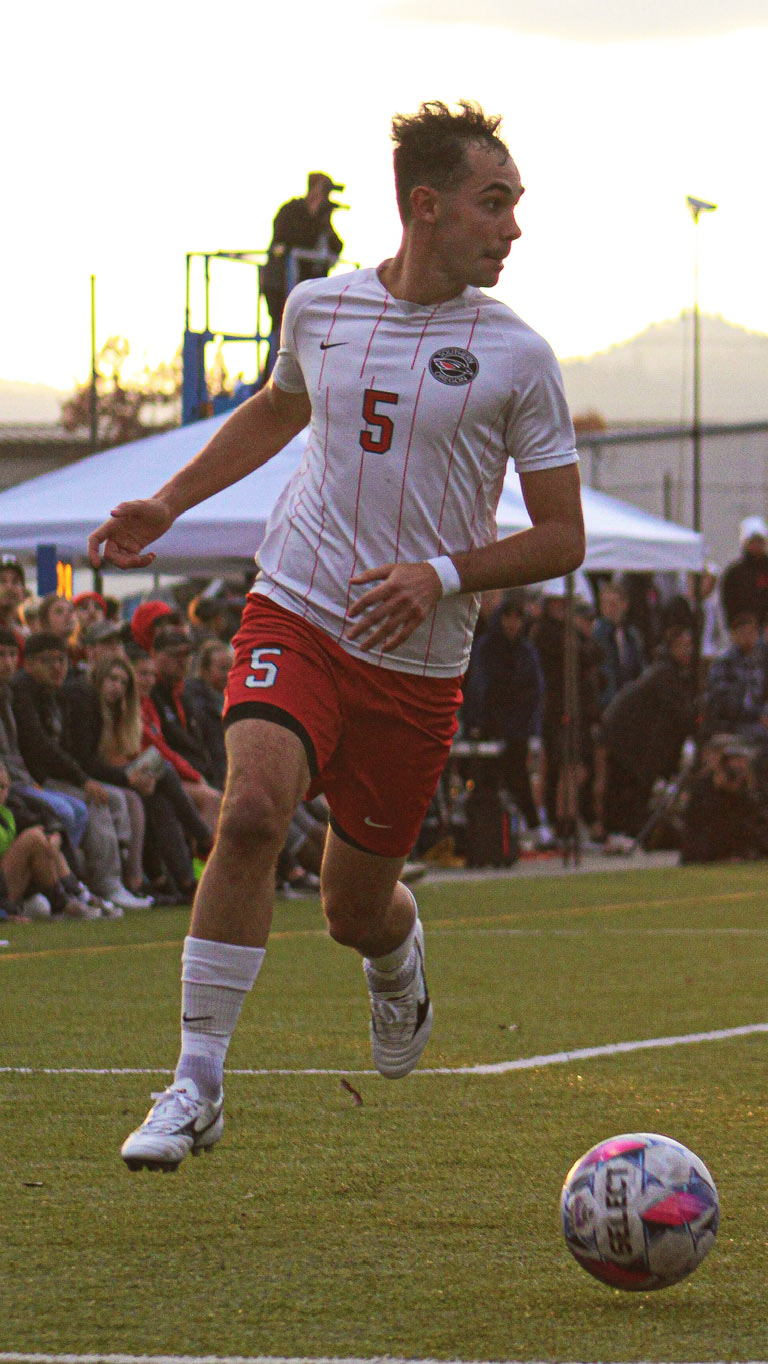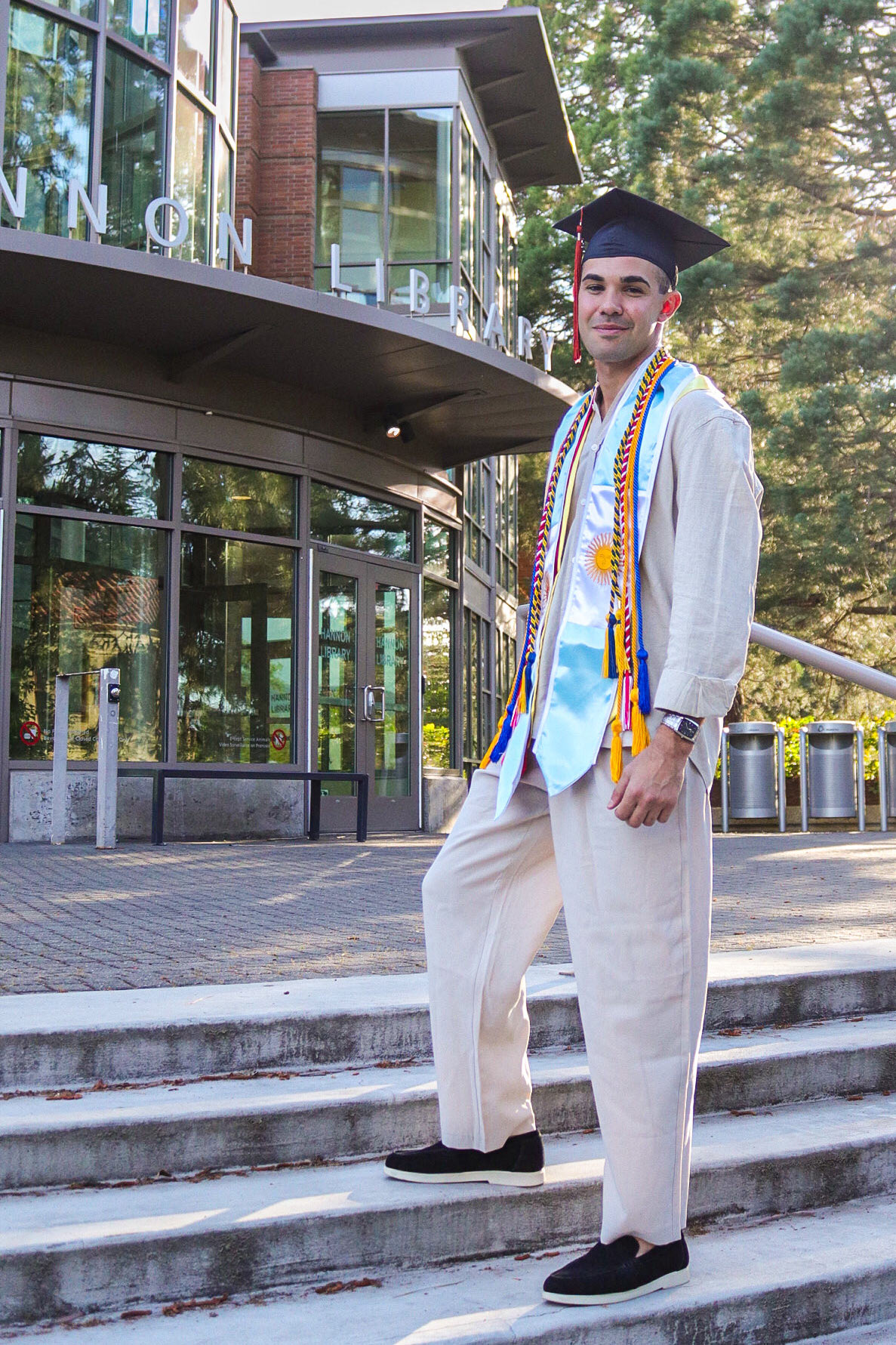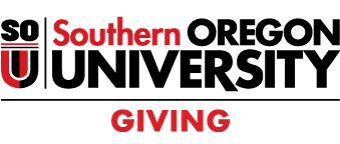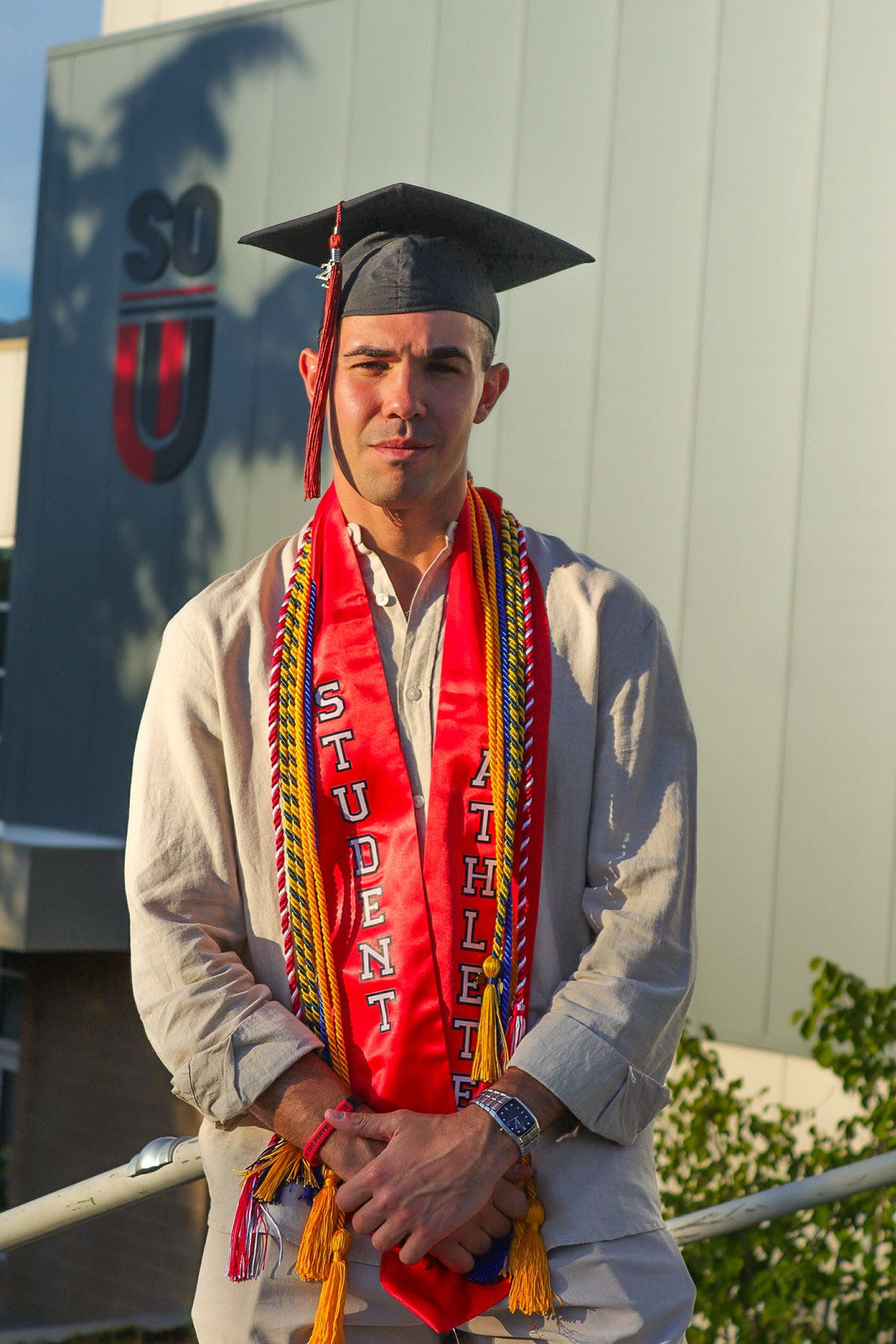Innovation Story Series
Scholar. Athlete. Changemaker: How Philanthropy Fuels Real-World Learning at SOU
An Academic and Athletic Home
Franco Fasoli, an international student from Argentina who is graduating with a B.S. in Economics, was initially drawn to SOU for its robust program in his field of interest, coupled with a competitive soccer program—an ideal convergence that spoke to his aspirations.
Being a Scholar-Athlete
Since arriving at SOU in 2023, Franco has been a key player on the men’s soccer team, contributing to a program defined by both excellence and camaraderie. Supported by a soccer scholarship, he joined a team remarkable for its international makeup—nearly 14 nations represented, including Japan, Australia, South Africa, Gabon, and England—each player bringing a distinct perspective to the game and the campus community. In his first season, Franco helped lead the team to a conference championship and into the national tournament.

Franco Fasoli, Scholar-Athlete at SOU
This year, the team finished second in the conference—just one game shy of a repeat title—and maintained a national ranking throughout the season. For Franco, the experience has been about more than wins and rankings. It has been a daily practice of SOU Athletics’ foundational pillars—wisdom, courage, and character—emblazoned on the stadium walls and lived out on the field.
Outside of academics, soccer has been central to Franco’s experience at SOU. As someone who considers himself shy, being part of the men’s soccer team gave him an essential way to connect with others, build friendships, and feel rooted in campus life. It became his starting point for community at SOU.
Finding Purpose Through Real-World Learning
In his final year at SOU, Franco found an unexpected connection between his academic studies and his long-term career goals. During a class in the Economics capstone sequence, he shared his interest in real estate with Dr. Bret Anderson, SOU Economics faculty member and chair of the History, Economics, and Politics program. When Dr. Anderson learned of Franco’s interests, he saw an opportunity—and mentioned that there might be a local project that would align perfectly with Franco’s goals.
What began as a profit-focused idea quickly shifted direction. Guided by SOU’s commitment to social impact and sustainability, the project evolved into something with deeper community roots. Franco began working in collaboration with the Trusted Homes Community Land Trust of the Rogue Valley, connecting theory from the classroom to the real-world complexities of affordable housing and land use.
Under the framework of the Local Innovation Lab as part of SOU’s curriculum, Franco’s research focused on Jackson County’s real estate market, particularly how land location affects housing prices. The Lab helps students develop leadership skills through mentoring and practical experiences, such as internships, community projects, and entrepreneurial ventures.
Advancing Regional Sustainability
Through this work, Franco developed a more nuanced view of the challenges facing the region, deepened his academic understanding, and grounded his ambitions in a sense of purpose–all shaped by SOU’s emphasis on regional engagement and ethical leadership. This hands-on experience also heightened Franco’s awareness of sustainability as both an environmental and social responsibility. By addressing real-world land and housing issues, he saw how sustainable practices can create long-term benefits for communities and ecosystems alike.
Franco says, “Working on this project taught me a lot—I now understand how policies and regulations really shape who can access housing, especially in the market segment the land trust is trying to serve. It’s made me think about how this model could work back home in Argentina, especially in rural areas. Instead of building for tourism, we could create stable neighborhoods. I see it as a sustainable model—if it can be done right.”
Experiential Learning at SOU
Franco’s work in the Local Innovation Lab has given him a practical education beyond the classroom. He has developed a working knowledge of zoning laws, tax credits, and affordable housing finance. But more than that, the experience has clarified his purpose: to apply economics not just for profit, but for equity. Franco says,
“In school, you usually follow the same pattern—learn, get tested, get graded, and move on. But this was totally different. It was real-world and dynamic. I learned how to work with community partners, network, and collaborate. Being in the lab with other students working on their own projects made it even better—it felt like we were all part of something meaningful.”
Mentorship That Matters
One of the most meaningful parts of Franco’s academic experience at SOU has been the mentorship he developed with Dr. Bret Anderson. Franco describes him as his favorite professor and someone he speaks with regularly outside of class. Their conversations extend far beyond coursework, offering a space for guidance, challenge, and collaboration. Franco sees this kind of close, one-on-one mentorship as something unique to SOU—an opportunity that would be difficult to find at a larger university.
Bret Anderson says,
“Although we have a curriculum that guides the students through self, project, and team leadership tools, the mentorship of students doesn’t come from textbook pages. Mentorship is relational, requires a slow pace, and is a two-way street. Being a partner with Franco in his self-leadership journey has been incredibly rewarding for me.”
Anderson continues, “I have benefited immensely from my own mentors, so I know the transformative power it can have. In fact, this entire Local Innovation Lab curriculum is a product and outcome of my mentor.”

Photo Credit: Jennah Michaels
Franco has felt supported by both faculty and staff, noting that the culture at SOU is grounded in care, access, and encouragement. That environment has made it easier to pursue ambitious academic work while adapting to life far from home.
The Impact of Philanthropy
Franco’s project work is supported by a student stipend, which he sees as both a responsibility and a motivator. Knowing the funding comes through the Institute for Applied Sustainability—and that the Institute itself was funded and powered by a major philanthropic gift from Lithia and Driveway —adds meaning to the experience. For Franco, this is a clear example of how corporate investment can create a trickle-down effect, fueling hands-on learning that benefits students and communities alike.
Franco reflects,
“Lithia’s gift supports the Institute, the Institute supports students like me, and I get to do work that matters for the community. That kind of investment has real impact. It pushes me to give my best because I know someone believed in the value of what we’re doing.”
Looking ahead, the project has shifted Franco’s sense of what a career in economics might look like. While he still hopes to pursue a graduate degree in international real estate, he now sees policy analysis—especially community-based policy—as a possible path. The community land trust model, with its focus on equitable ownership and neighborhood stability, has sparked ideas about how similar concepts could take shape in Argentina. For Franco, the work at SOU has not only shaped his degree—it has shaped his direction.
***



